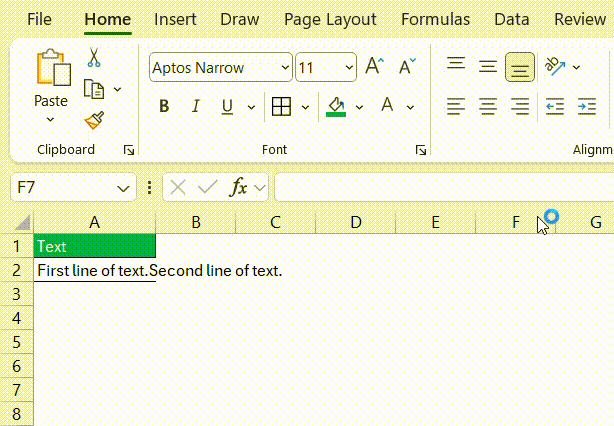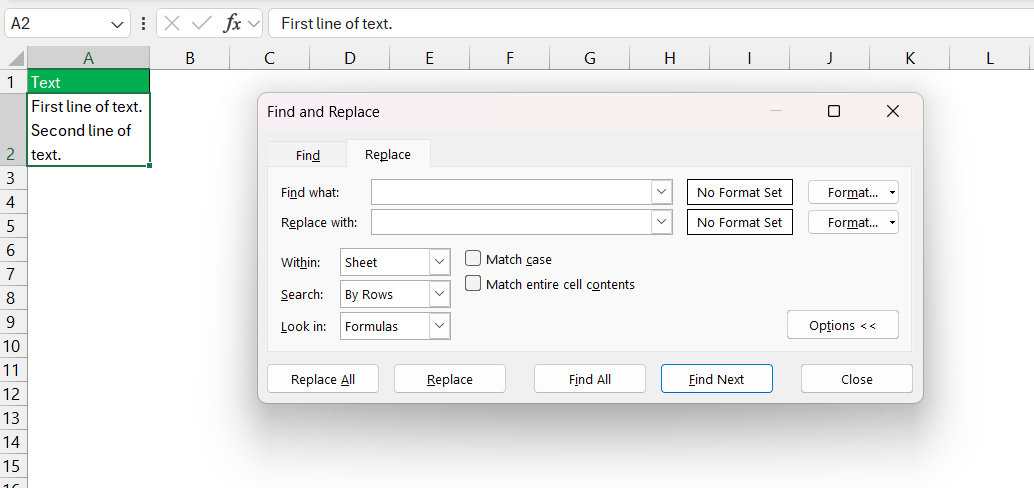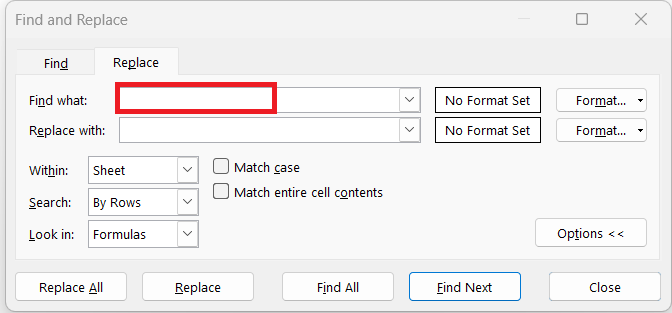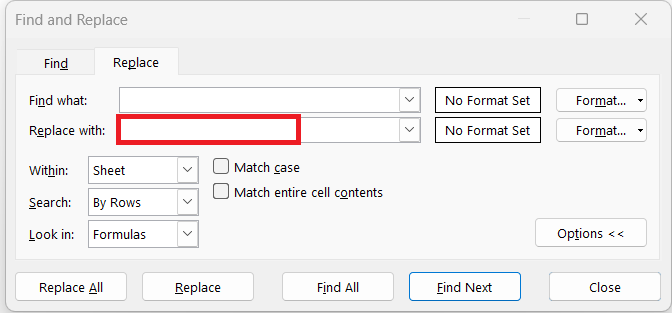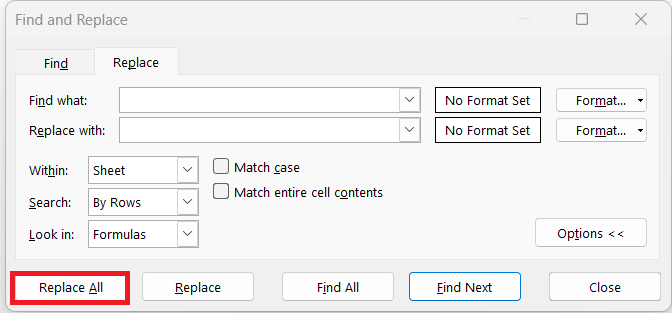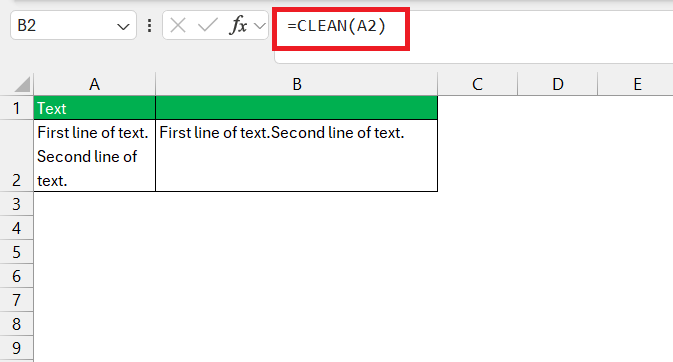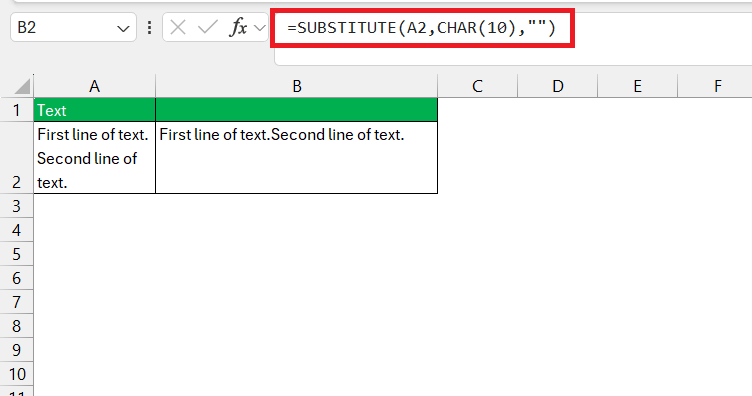Efficient data analysis in Microsoft Excel hinges upon clean datasets, free from pesky line breaks that disrupt calculations and sorting. Line breaks, often imported with text data or inserted manually, can complicate tasks like filtering and parsing. Understanding how to handle these disruptions is essential for maintaining data integrity and usability in Excel.
Key Takeaways:
- Clean and accurate datasets are essential for efficient analysis in Excel. Line breaks can obscure data and affect calculations, highlighting the importance of removing them.
- In Excel, line breaks allow text to span multiple lines within a single cell. Knowing how to insert and remove line breaks is crucial for organizing data effectively.
- Line breaks can disrupt functions like CONCATENATE and sorting, complicating text manipulation tasks. Removing them systematically or using Excel functions like CLEAN and SUBSTITUTE can streamline data processing.
- Data Normalization: Once line breaks are eliminated, consider standardizing data formats for consistency. Techniques like capitalization normalization and uniform formatting enhance data readability and analysis.
Table of Contents
Introduction to Data Streamlining in Excel
The Importance of Clean Data for Analysis
When working with data, it’s crucial to have clean and accurate datasets for analysis. Not only does it save time in the long run but also ensures consistency, precision, and reliability in your conclusions. The presence of extra characters or spaces can throw off your calculations, affect sorting functionality, and cause a headache when interpreting results.
Overview of Line Break Issues in Excel
In Excel, line breaks are like invisible speed bumps that disrupt your flow of data. They typically arise when importing text data from other sources or during manual entry. These line breaks force text onto a new line within a single cell, which complicates data manipulation tasks such as sorting, filtering, and parsing. Understanding how to handle these pesky intruders is pivotal in maintaining the integrity and usability of your data in Excel.
Understanding Line Breaks in Excel
What is Line Breaks?
In Excel, a line break is a way to break text within a cell onto multiple lines without actually moving to the next cell. This feature is particularly useful when you have lengthy text or data and you want to make it more readable within a single cell.
To insert a line break in Excel:
STEP 1: Select the cell where you want to insert the line break.
STEP 2: Double-click on the cell or press F2 to enter edit mode.
STEP 3: Place the cursor where you want the line break.
STEP 4: Press Alt + Enter.
This action will create a line break at the cursor position, allowing you to input text on multiple lines within the same cell. It’s a handy feature for organizing data or making lengthy descriptions more readable within Excel cells.
How Line Breaks Affect Text Manipulation
Line breaks in Excel can cause unexpected results when you’re manipulating text. They can disrupt functions such as CONCATENATE or prevent data from aligning properly in tables. When a cell contains a line break, Excel treats it as a delimiter, which can impede operations like searching and replacing text.
Additionally, sorting functions can misinterpret the breaks, complicating your ability to organize data efficiently. Mastering the removal or control of line breaks, therefore, becomes essential for accurate text manipulation and streamlined data analysis.
Methods to Remove Line Breaks
Using Find and Replace to Eliminate Line Breaks
Using the Find and Replace feature is your go-to quick fix for eliminating line breaks in Excel. This powerful function sweeps through your selected data and systematically removes each unwanted line break, tidying up your cells with minimal fuss.
To remove line breaks using the Find and Replace feature in Excel, follow these steps:
STEP 1: Press Ctrl + H to open the Find and Replace dialog box.
STEP 2: In the “Find what” field, press Ctrl + J. This inserts the line break character into the field. You won’t see anything, but it’s there.
STEP 3: Leave the “Replace with” field empty if you want to remove the line breaks entirely.
STEP 4: Click on “Replace All” to remove all line breaks in the selected range or worksheet.
This process will replace all instances of line breaks with nothing, effectively removing them from your text. Make sure to use it with caution, as it will affect all instances of line breaks in the specified range or worksheet.
Applying Excel Functions: CLEAN and SUBSTITUTE
The Excel functions CLEAN, and SUBSTITUTE are your trusted assistants when cleaning up text in your spreadsheets. CLEAN is there to sweep away all non-printable characters, including the stubborn line breaks that don’t show but make a mess of your data.
Lastly, SUBSTITUTE is the precision tool; it lets you target specific text (like line breaks encoded as CHAR(10)) and replace it with a comma, space, or any text you choose, offering tailored results for your text cleanup needs.
Going Beyond Removal: Normalize Your Data
Combining Text Cleanup with Data Normalization Techniques
Once you’ve shown those line breaks the door, take your data to the next level with normalization techniques, ensuring your text is not just clean but consistently formatted. This might involve setting up uniform capitalization using functions like UPPER, LOWER, or PROPER, or standardizing date and number formats across the board. The aim is to create a dataset that is as smooth and standard as a freshly ironed shirt, making analysis and comprehension a breeze.
Format and Align Cells for Improved Readability
Beyond the purging of line breaks, there’s an aesthetic touch you can apply to your cells for crystal-clear readability: formatting and alignment tweaks. Adjusting the vertical alignment of all cells to ‘Top’ can greatly enhance the way you cruise through data on the screen—no more eye-jumping from the bottom of one cell to the top of the next. Paired with uniform text formatting, such as font size and style, your worksheets become not just functionally stellar but also visually inviting.
FAQ: Frequently Asked Questions
How do I remove line breaks in my Excel file?
To remove line breaks in your Excel file, use the Find and Replace feature by pressing Ctrl + H. In the ‘Find what’ field, enter the line break shortcut, Control + J, and in the ‘Replace with’ field, enter a space or other character. Then click ‘Replace All’ to remove the line breaks.
What is the difference between a line break and a carriage return in Excel?
A line break, created by a Line Feed (LF), moves text down to a new line within a cell in Excel. A carriage return (CR), ASCII code 13, brings the cursor to the start of the same line. In Excel, they’re often used together as a newline character (CR+LF) for starting a new line.
Can I remove line breaks in Excel Online or on a Mac?
Yes, to remove line breaks in Excel Online, use the desktop app. On a Mac, use Find and Replace with Command + J to find line breaks, then replace them as needed. Keep in mind, technique nuances may vary by Excel version.
Are there any shortcuts to quickly remove line breaks?
Yes, in Excel, quickly remove line breaks by using the shortcut Ctrl + H to open Find and Replace, then in ‘Find what’, use Ctrl + J to target line breaks, and replace them as desired.
How can I prevent accidental line breaks when entering data?
To prevent accidental line breaks when entering data in Excel, avoid using the Enter key within a cell. Instead, use arrow keys to navigate or Tab to move to the next cell. Additionally, turning on the ‘Wrap Text’ feature can help by enabling text continuation within a cell without manually adding a line break.
John Michaloudis is a former accountant and finance analyst at General Electric, a Microsoft MVP since 2020, an Amazon #1 bestselling author of 4 Microsoft Excel books and teacher of Microsoft Excel & Office over at his flagship Academy Online Course.
